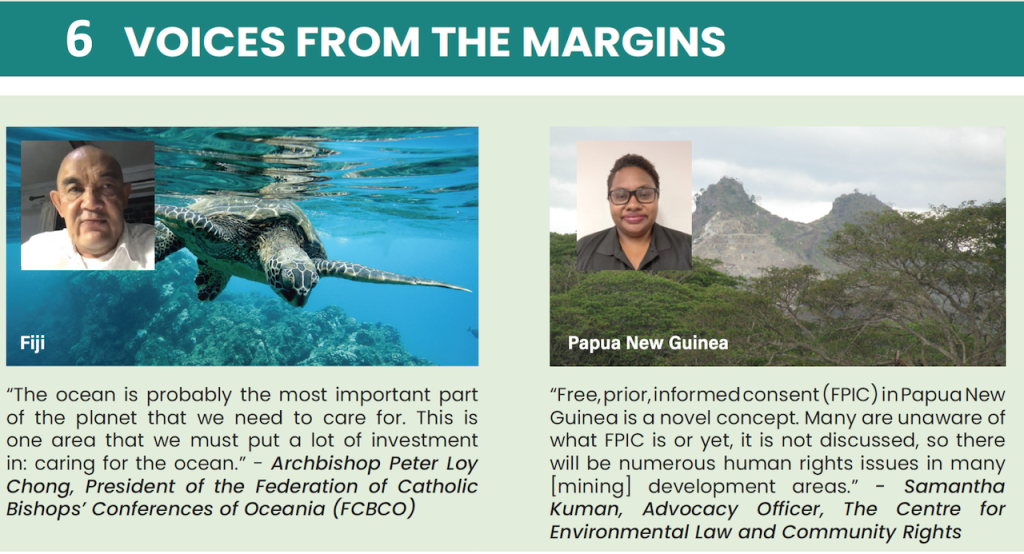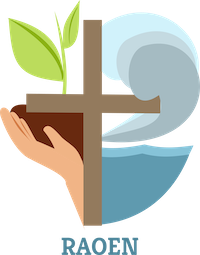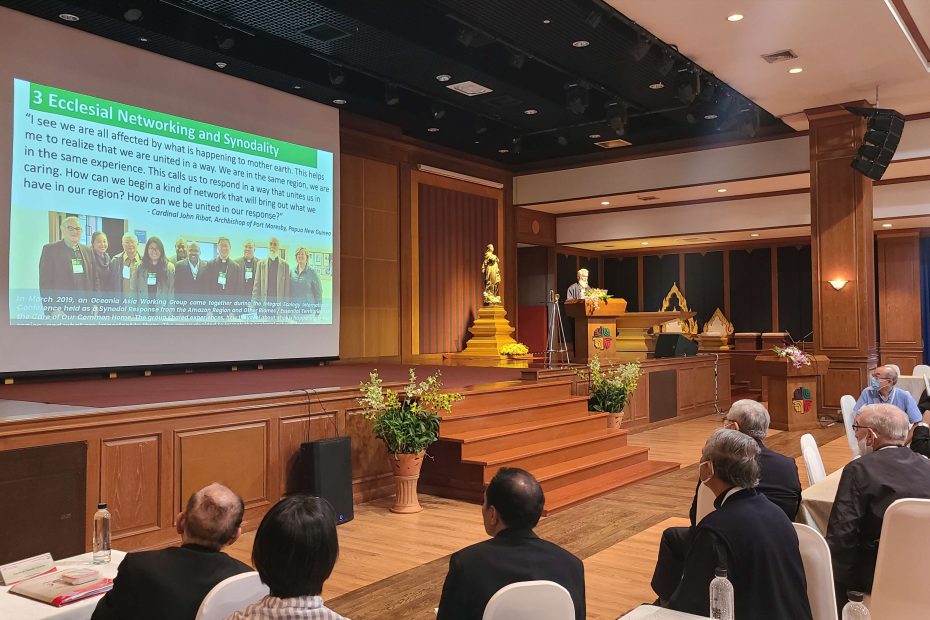During the recent 50th General Assembly of the Federation of Asian Bishops’ Conference (FABC), Pedro Walpole SJ, network catalyst for the River above Asia Oceania Ecclesial Network (RAOEN), briefly shared about the emerging ecclesial network’s purpose and its initial efforts in responding to the call for reconciliation in the Oceania and Asia biome – its people, its lands, its oceans. Fr Walpole also invited those in the Assembly to share RAOEN with those who could help effect change. A video of the brief RAOEN presentation by Fr Walpole at FABC50 can be viewed here.
Good afternoon Your Eminences, people of God. I would like to talk about what is called the River above Asia Oceania Ecclesial Network (RAOEN). We are talking today of peace and dialogue; what we need in today’s world is the reconciliation of people’s, oceans, and land.
Coming from the Synod of the Amazon, the value of ecclesial networks was highlighted especially in engaging the indigenous and their relation with all life. Cardinal Gracias reflected on the Synod and said:
“I see that what’s happening is really a worldwide phenomenon of disgracing Indigenous Peoples. The most intense and consistent cry has been the violence against Indigenous People; the killing of these people, their leaders, and the violence against their culture. They need to be protected against that at all costs.”
And, the greatest killing in this context is really the economic drive, and Indigenous Peoples are certainly excluded.
When we look at local territories, we also talk of the larger biome. This is how people, land, oceans, and the climate come together, so it is very much an integral ecology. The focus in Oceania and Asia is looking for that basis of reconciliation.
A number of us met and we continued to meet over the year in response to the request (for reconciliation). In 2019, we started an ecclesial network. It is a very simple network consisting of a Steering Committee, a Secretariat team, and an Extended Consultative Group. The different federations of bishops have a presence in this, along with the Dicastery for Promoting Integral Human Development. We are trying to engage other ecclesial networks across the globe to be part of this, in which we are really seeking a process of change.
We took this (development of the RAOEN brochure) from the earlier documents of FABC on dialogue, discernment, and deeds. We added the desires which are the hopes of the youth.
Our first steps in this are very little steps of drawing voices from the margins. Archbishop Peter Loy Chong and many others contributed their voice from their lands and their ocean.
A further step in this is working with communities to map out their resources, their relationships, and their practices which are extremely valuable, as these are culture-based solutions to many of the ecological problems that we are facing.
We also see here how the youth are also seeking to engage the local government in dialogue. Our effort here is to try to weave these stories together in terms of a dialogue with nature and the youth. In terms of reflections, we also seek to connect with basic ecclesial communities (BECs) which often come from indigenous contexts. We are also bringing this dialogue to the UN faith and ecology engagement (UN Faith for Earth Initiative).
These are actual methods and approaches emerging in the Oceania and Asia context. We have REPAM from the Pan-Amazonia region which you are probably aware of, REBAC in Africa particularly in the Congo Basin, RAOEN which is in Oceania and Asia, REEMAM in the Meso-American region, and the Gran Chaco and Guarani Aquifer Territory. The European Laudato Si’ Alliance (ELSiA) is emerging in Europe, and we have another network emerging in North America.
On a related matter, I have been working with people in Southeast Asia in terms of the Vatican Covid-19 Commission and we have put a report together that lays out some of the same needs in terms of addressing sustainability of food, the environment, and livelihoods for people.
All of these are interweaving.
My final request is to please connect us with someone from your diocese or office and we will share with you further information on the network. We are asking you to share with us the connections you have with Indigenous Communities and their stories, and how we can interweave all of these voices together, and lay out the strategies and movements out there.
This is an effort to really draw in from the margins, so we hope that you continue to support RAOEN, particularly within the efforts of the Church and the voices of the indigenous. I thank you deeply.



